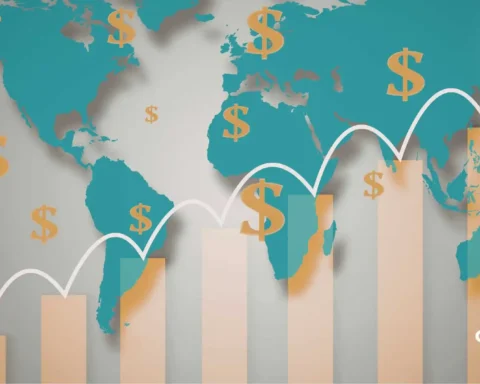The Global diaspora of India is not merely a tale of migration, but one of influence, money, and silent power. Non-Resident Indians remit back home an incredible 120 billion dollars annually, or approximately 3.3 percent of the country’s GDP. On the one hand, the story is an account of economic success and family devotion. However, on a deeper level, the issue becomes uncomfortable: how much of this diaspora money is being channelled into the political bloodstream of India, whether directly or indirectly?
It is not that easy, and so is the trail of money, emotion, and ideology, which links Indians in a foreign land to the politics of a country they usually left decades ago.
The Legal Wall and Its Cracks
The Indian Foreign Contribution (Regulation) Act (FCRA) is straightforward: political parties are not supposed to receive foreign money directly. This law was developed in a way that would protect the democracy of India against foreign intrusion and maintain the boundary between national and international money.
But practically, that line has dissolved. Loopholes in the law have been introduced over the years that have permitted political groups to access the fund via subsidiaries and Indian registered companies owned by other international businesses. Then there are the unofficial networks, charitable funds, religious trusts, cultural societies, and the outcome is a shadow network functioning on a global basis.
Diaspora groups in a foreign country do not have to send donations to political parties to influence the results. They finance gatherings, employ lobbyists, and exaggerate ideological accounts that fall into the political conditions in the country of origin. Although it is technically legal, this kind of influence usually borders on the line of democratic morality.

The Rise of Diaspora Influencers
Indian diaspora, or the global Indians, especially those in North America and Europe, has transformed from a group of migrants into a political force in the world. Diaspora-based Hindu organizations have become very visible in such cities as London, Houston, and Toronto, where they celebrate the culture of India and develop the nationalistic narrative.
They are more active in election periods. Fundraising parties, cultural shows, and solidarity events are usually subtle political ideology. Recently, an event in New Jersey has attracted thousands of people holding Indian flags, shouting slogans of patriotism, and celebrating governmental policies. There was no display of party symbols on the stage, but the orientation was clear.
There is even a more hidden motive behind the applause: emotional investment has transformed into political capital. Such groups assist in defining the perception of India among other countries, and they tend to project criticism of governmental policies as anti-national or anti-Indian. It is a strong emotional frame that represses opposition and mobilizes pride.
Money, Nationalism, and Identity
To most Non-Resident Indians, it is an expression of love to give to the causes of India. It is all about repaying the nation that provided them with the roots. Talk to any foreign worker remitting money back home, and you would hear such terms as pride, duty, and identity. However, emotion can be a potent disguise of political judgment.
This combination of nationalism and funding transforms remittance networks into underground political pipelines. Also, sometimes the donations to the development projects are mixed with campaigns that reiterate the rhetoric of the ruling party directly. The political agenda, shrouded in the need to keep culture alive, is unquestioned.
A New Delhi-based political observer puts it bluntly: “Diaspora money doesn’t need to cross into illegal territory to change India’s politics. When narratives are financed and exported back into India, they shape voters and redefine nationalism itself.” (Source)

The Emotional Tug-of-War
This question would be answered by first having an idea of the emotional attachment that the diaspora has towards India. To people who are thousands of miles away, it is not merely about money when donating but about belonging. Political engagement is replaced by conferences, temples, and cultural festivals. They give a feeling that they are part of the development of India.
To a software engineer working at Silicon Valley, remittance to cultural trust in Gujarat is nostalgia as well as identity. It is his way of remaining in touch, he explains. “And if I make India stronger, I am proud of it.
However, such pride is often present in the stories promoted by influential interest groups. It is the emotional giving in such instances that ends up being political, even without the knowledge of the giver. Democracy may be quietly killed when feelings are used against it.
Western Democracies Also Feel the Ripples
The influence isn’t one-sided. Diaspora based organization activities also impact the host nations, as the organizations tend to align with the ideological movements in India. Democrats in the United States, Canada, and the United Kingdom are growing more desperate to seek the support of Indian diaspora blocs in terms of funding and votes. Diaspora leaders, in their turn, promote stories about the inner politics in India and even pressure foreign politicians to either favour or turn a blind eye to what is happening in India.
The outcome: transnational lobbying, which masks the sovereignty of the two democracies. Western governments are afraid of offending a growing India and so they are walking on toes. The topics of human rights are viewed as sensitive diplomatic issues, whereas the groups of diasporas are ecstatic about the so-called cultural diplomacy, which usually follows political motives.
Who Guards the Guardians?
It is not about the diaspora helping India, but whether the process is transparent, accountable, and democratic. It is only natural to be emotionally invested in the homeland, which is beautiful. However, when it becomes systematic political funding, in an informal manner, the political systems of the two countries are put to the test.
Political funding is monitored in official bodies, such as watchdog organizations, such as the Election Commission and the Enforcement Directorate. However, informal transnational networks, operating via NGOs or even via cultural fronts, tend to be beyond their view. With transactions being borderless due to the use of technology, it is almost impossible to ensure oversight.
Democracy requires not just the vote itself but also the virtue of what finances the voting and determines the votes. Silence is complicity when huge amounts of money pass unseen between patriotism and power.

Between Heart and Influence
India’s diaspora has every right to feel pride in its homeland. Its success abroad is undeniably one of India’s greatest assets. But democratic health isn’t measured in GDP; it’s measured in transparency, consent, and trust.
When diaspora money enters politics through emotion and ideology, it demands public scrutiny because behind every patriotic donation may lie not just affection, but influence.
And that influence, carried on the wings of pride, may be reshaping India’s democracy in ways few are willing to admit.
India received nearly $120 billion in remittances, 3.3% of its GDP. That’s diaspora money shaping India’s economy. But here’s the controversial part: foreign donations to Indian political parties are restricted, yet informal networks keep the money flowing. Diaspora organisations aligned with Hindutva actively lobby, fund events, and influence narratives abroad. But who’s watching? When money, nationalism, and politics mix across borders, are we protecting democracy, or undermining it in both India and the West?









